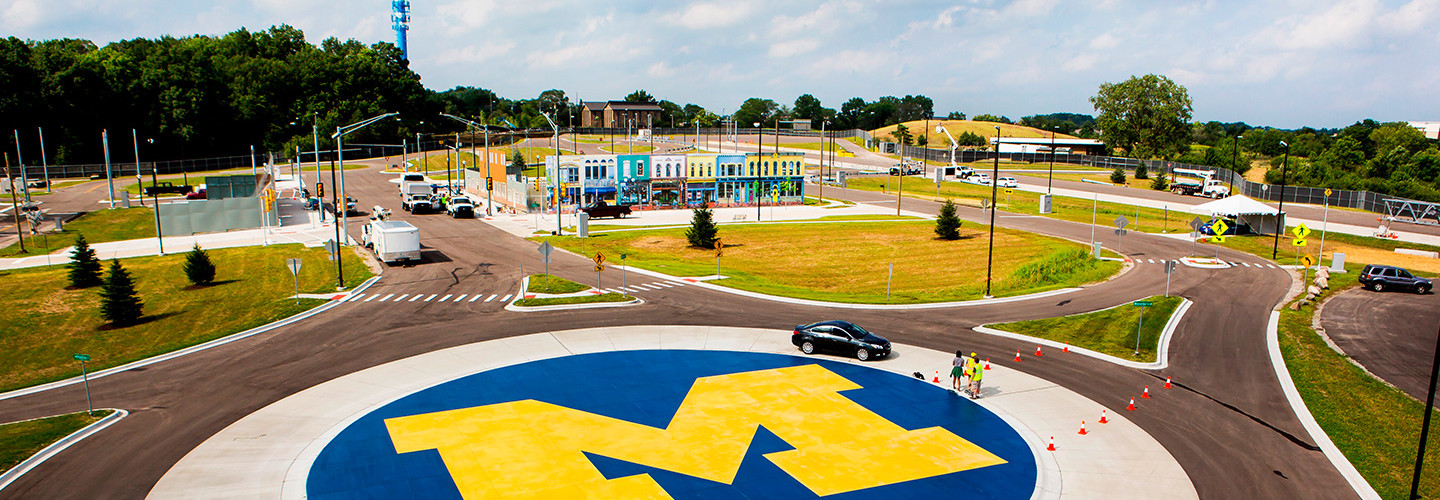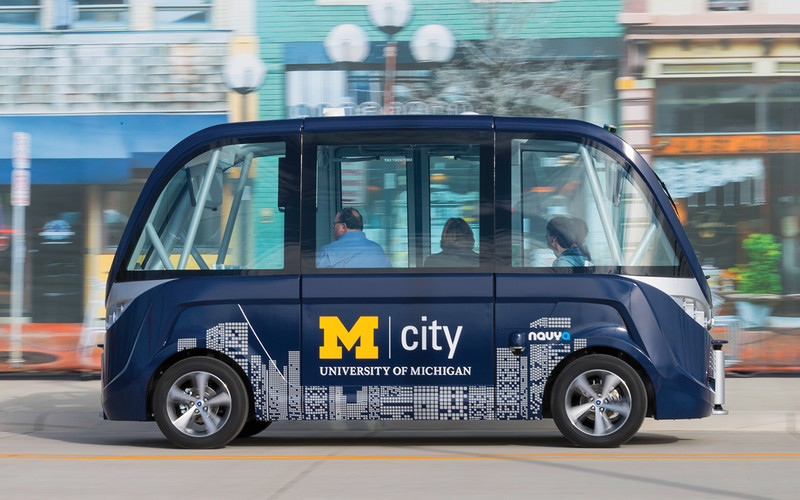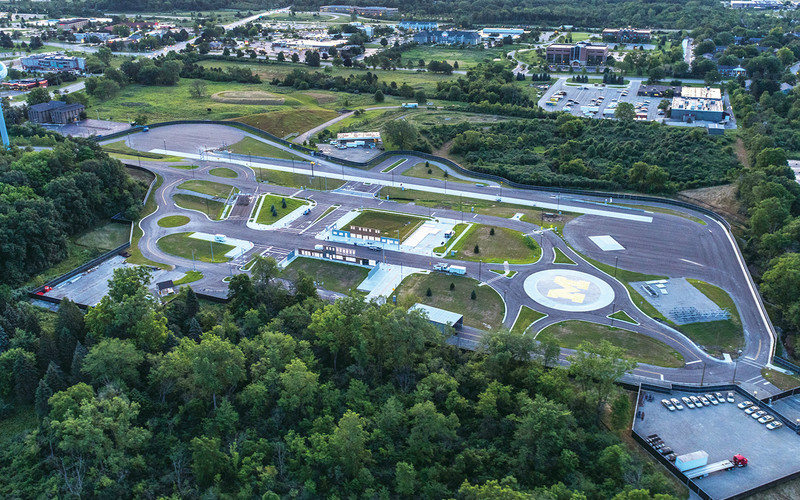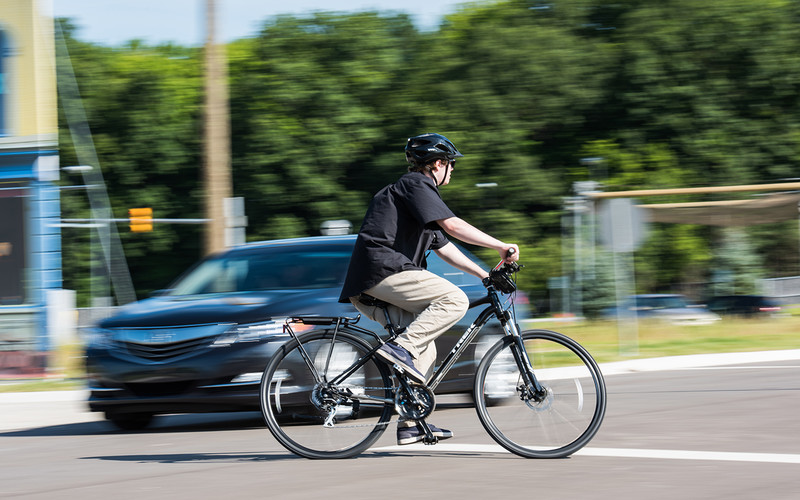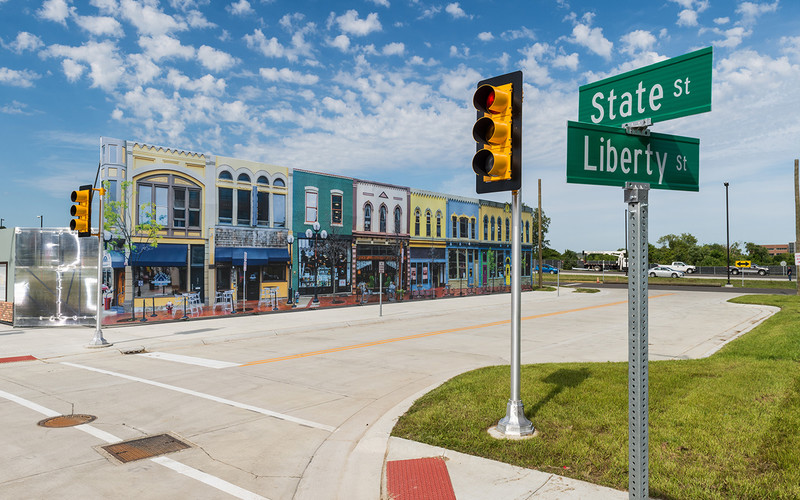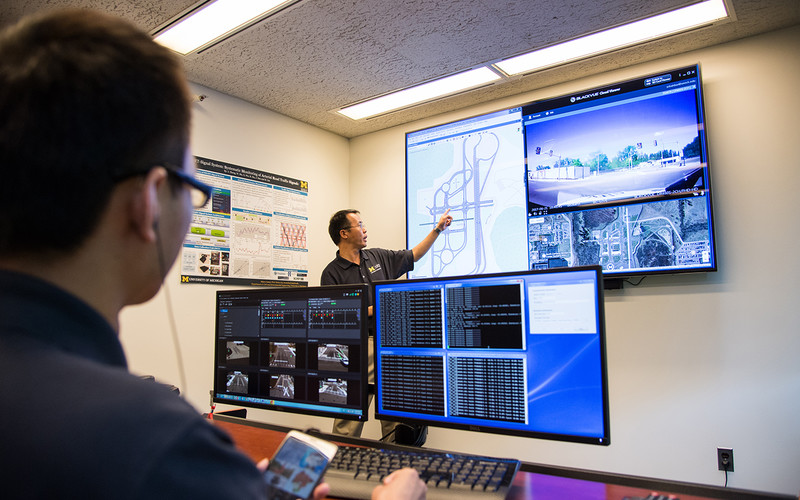Mcity Director Huei Peng describes Ann Arbor as an ideal test bed for smart city initiatives. Photo: Marvin Shaouni
Smart City and Campus Partnerships Advance the Internet of Things
For many students at the University of Michigan, their host city, Ann Arbor, serves as a home away from home. For a few, however, and for U-M professor Huei Peng, it’s also the perfect place to conduct applied research — and to push the boundaries of the Internet of Things.
Peng, a Roger L. McCarthy Professor of Mechanical Engineering, is also the director of Mcity, an advanced mobility research center and public-private partnership between the university, the city of Ann Arbor, and dozens of other government and industry entities.
Mcity’s focus is on the development of connected, automated technologies that are the backbone of intelligent transportation, including driverless vehicles. Ann Arbor, says Peng, is the center’s living laboratory, an ideal setting for collecting data and putting theories to the test.
“Because of our campus, we have a very busy and congested downtown area,” he says. It’s a model urban environment, in his opinion, but also not far from the less-traveled countryside. “You have the city, the rural and the places in between. Within 4 to 5 miles, you’ve got everything.”
Mcity’s research relies on data from about 2,800 privately owned cars and trucks, city buses, university taxis and other vehicles, says Peng. Each is equipped with a GPS antenna and a dedicated short-range communication (DSRC) device, which collect and communicate data on each vehicle’s position, speed and direction of travel, as well as its location relative to other connected vehicles participating in the Mcity network.
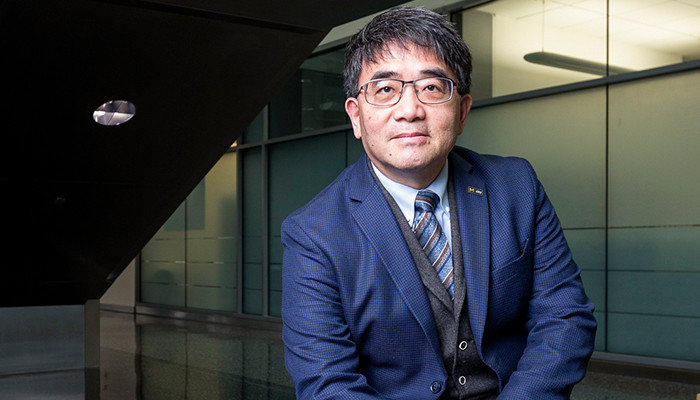
Approximately 65 intersections across Ann Arbor have been outfitted with DSRC technology, along with other locations, such as certain curves on surrounding highways.
Mcity’s status as an academic-municipal partnership helps it recruit local residents for the project, Peng says. The data collected as they navigate Ann Arbor is stored on SD cards or hard drives (with residents’ identifying details removed) and downloaded in batches to university systems at regular intervals for analysis. If the program was simply government- or industry-run, people would likely be far less willing to permit such tracking of their daily whereabouts, he says.
“They trust that we’ll use this data for research and not to issue speeding tickets, for example. They know we have to abide by a very strict code of ethics.”
MORE FROM EDTECH: See how Arizona State University deployed smart parking and facilities management.
Smart City and Smart Campus Partnerships Can Scale IoT
U-M is among a growing number of universities exploring the possibilities of the IoT through collaborations with local and regional communities. In Cleveland, Case Western Reserve University and Cleveland State University work closely with their home city through the Internet of Things of Collaborative. In Massachusetts, Boston University just completed its fifth year of a campus-city collaboration known as SCOPE, or Smart-city Cloud-based Open Platform and Ecosystem.
The Cleveland IoT project centers on interconnected devices that are critical to the city’s industrial and urban infrastructure. Student and faculty participants represent disciplines as diverse as chemical and biomedical engineering, criminology, anthropology, and sociology. SCOPE, meanwhile, leverages existing BU research projects examining innovative applications for sensor networking. The university’s downtown Boston location offers an opportunity for the campus community to incorporate the city in teaching and learning.
“Partnerships between cities and universities aren’t new,” notes Brenna Berman, co-chair of the Illinois Technology Association’s Internet of Things Council and executive director of the Chicago-based City Tech Collaborative. “Because they’re busy, crowded, fascinating places with lots of fun things going on, there’s always been an interest in the city as a petri dish.”
What’s new, Berman says, is the scale at which IoT projects can take place, as well as their potential impact on cities and campuses alike.
“There’s tremendous value in these collaborations as a catalyst for modernization,” she says.
Smaller college towns especially, says Berman, typically lack the financial and technical capabilities to conduct smart city initiatives on their own, so partnering with universities makes sense. At larger colleges, the funding and know-how are often there, but a municipal alliance can take research to the next level.
“Collaboration is critical for any university that wants to solve complex, real-world problems” by applying IoT solutions in innovative ways, Berman says.
The bonus is that such partnerships also benefit students, who get hands-on experience with cutting-edge digital technologies.
“These technologies they’re testing can transform their campuses as well, making them safer, more efficient and better places to live,” she says.
MORE FROM EDTECH: AI and smart campuses are among higher ed tech to watch in 2020.
Portland State Test Bed Pursues Safer, Smarter Cities
One institution on the leading edge is Portland State University, where Jonathan Fink, a professor of geology, is also director of PSU’s Digital City Testbed Center.
Established in early 2019, the DCTC is part of a network of IoT testing sites on four urban campuses across the Pacific Northwest. (They include the University of British Columbia in Vancouver, British Columbia, where Fink is a visiting professor of urban analytics and co-director of the Cascadia Urban Analytics Cooperative.)
The PSU test bed may be in its infancy, he notes, but it has big ambitions. Central to its mission of smart city innovation is its long-standing partnership with the city of Portland.
Prior to launching DCTC, Fink explains, PSU had worked closely with Portland’s Bureau of Planning and Sustainability and the Portland Bureau of Transportation on a proposal the city submitted to the U.S. Department of Transportation for a grant competition, the Smart City Challenge. Portland didn’t win the grant, but the bureaus decided to push ahead with their smart city vision anyway, creating a program called Smart City PDX. The program now has half a dozen projects underway, several of which involve PSU.
“Portland State is downtown, totally immersed in the city,” Fink says. The university has engineering and urban design faculty, as well as a large number of interested students “with great ideas related to urban problems, because that’s the environment they hang out in.”
DCTC resources help to augment city initiatives, Fink says. “When something comes along that the city is interested in, that’s where we put our funding.” One of those projects focuses on air quality sensors that monitor vehicle pollution. Another involves a traffic safety sensors initiative along three of the city’s high-crash corridors. For the air quality program, PSU researchers are evaluating various sensors to determine which ones work the best. For the traffic-related project, they have their attention on something else: a related pilot program called the Portland Urban Data Lake.
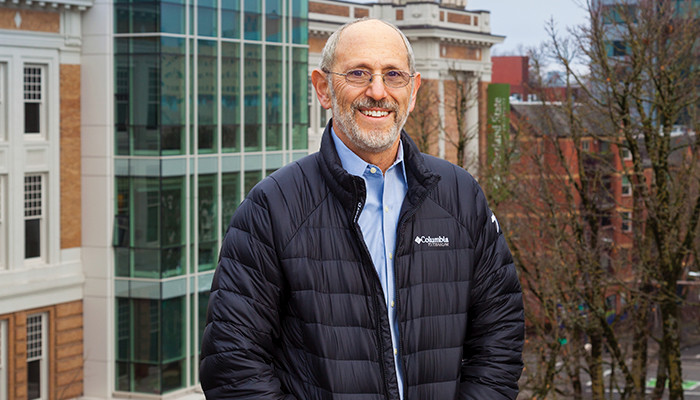
Jonathan Fink leads Portland State University's Digital City Testbed Center, which works with the city of Portland to tackle urban and transportation issues. Photo: Robbie McClaran
“We have 200 sensors collecting real-time information on vehicle, bike and pedestrian traffic,” says Kevin Martin, who manages Portland’s Smart City PDX program.
That IoT data — 3 million records per day — must be maintained in a centralized system that the city, for now, does not have. That raises questions, he says. “Where does that data go and how do we manage it? How do we analyze it and turn it into information we can use?”
The city of Portland has asked PSU to help design a solution and build the infrastructure required to make data-driven decisions that lead to safer city streets.
“We certainly have a lot of technical skill in the city, but we don’t have a lot of research expertise,” Martin notes. “I think that’s really where these kinds of partnerships with universities like Portland State bring a lot of value. If we can experiment with these technologies before we implement them, we’re going to increase our likelihood of success.”


